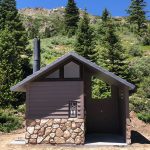Aspen School District financial future in voters’ hands
Four potential tax increases and renewals headed to November ballot

The Aspen Times archives
Voters will likely decide the financial future of the Aspen School District this November.
The Aspen School Board decided in an April 23 meeting to move forward with a bond as well as a mill levy override increase. It also took steps to renew the Aspen and Snowmass Village public education funds, which are sales and property taxes. Though still unofficial, the four funding options could go before voters as November ballot questions.
The board first plans to seek public input through a poll this spring.
“We need to get a plan to keep our school district not only where it is right now but grow it in the way we’d like to in the next decade,” said ASB President Christa Gieszl. “And we are not in a position to do that without some of these things getting passed in November.”
The school district has operated at a financial deficit for four of the past five years, according to Mary Rodino, assistant superintendent of business and operations. The district’s financial reserves also dropped from $8.1 million to $2.8 million between the 2017/18 and 2022/23 school years.
To find a reprieve from dire financial straits, it seeks the following options:
Bond
The district considers borrowing between $20 million and $120 million in a bond. The funding would be put toward housing acquisitions, a facilities master plan, and deferred maintenance, according to a presentation created by Rodino and Max Marolt, Aspen School District business office controller.
A $20 million bond would mean a $13 annual tax increase for district taxpayers who own a $1 million home. A $120 million increase would mean an $83 annual increase for taxpayers in the same position.
Mill levy override increase
The mill levy override increase would raise the limit the district can levy per pupil from 25% to 47% beyond the state’s financial cap. It would increase annual property taxes by $68 for district taxpayers who own a $1 million home but would yield roughly $5 million in recurring funding for the district.
The funding would help combat the $5 million expected funding fallout from HB24-1448, the New Public School Finance Formula, passed by the state last year. The formula increases funding for most public schools but detracts resources from the Aspen School District.
Aspen Public Education Fund renewal
The renewal of this sales tax would not increase existing district taxes. Set to expire after 2026, the 0.3% Aspen sales tax provides between $3 million and $3.5 million in annual funding to the district.
The funding is used for educational programs, recruiting, training and retaining employees, technology, special education, and professional development, according to the presentation.
Snowmass Village Public Education Fund renewal
This property tax renewal would continue to provide $500,000 annually to the district, which would be used for school programming, among other educational purposes. The existing property tax is set to expire at the end of 2026.
School board conclusions
The board leaned toward keeping a bond at $90 million or below, though it did not officially decide on a number. It also decided the mill levy override was crucial to maintaining the level of service it is currently providing to its students.
It discussed proposing an increase to both the Aspen sales tax and Snowmass Village property tax by 0.5% to 1%, asking the district’s financial staff to research what the increases would entail.
“You can’t fund schools without a lot of different revenue sources,” School Board Vice President Sarah Daniels said. “And right now, we’re sort of at a crisis and we really do need more money.”
Skyler Stark-Ragsdale can be reached at 970-429-9152 or email him at sstark-ragsdale@aspentimes.com.
Aspen School District financial future in voters’ hands
Voters will likely decide the financial future of the Aspen School District this November.
Injured skier has ‘incredible’ self-rescue below Castle Peak
There wasn’t much Marieta Bialek and Austin Zedak were concerned about.









